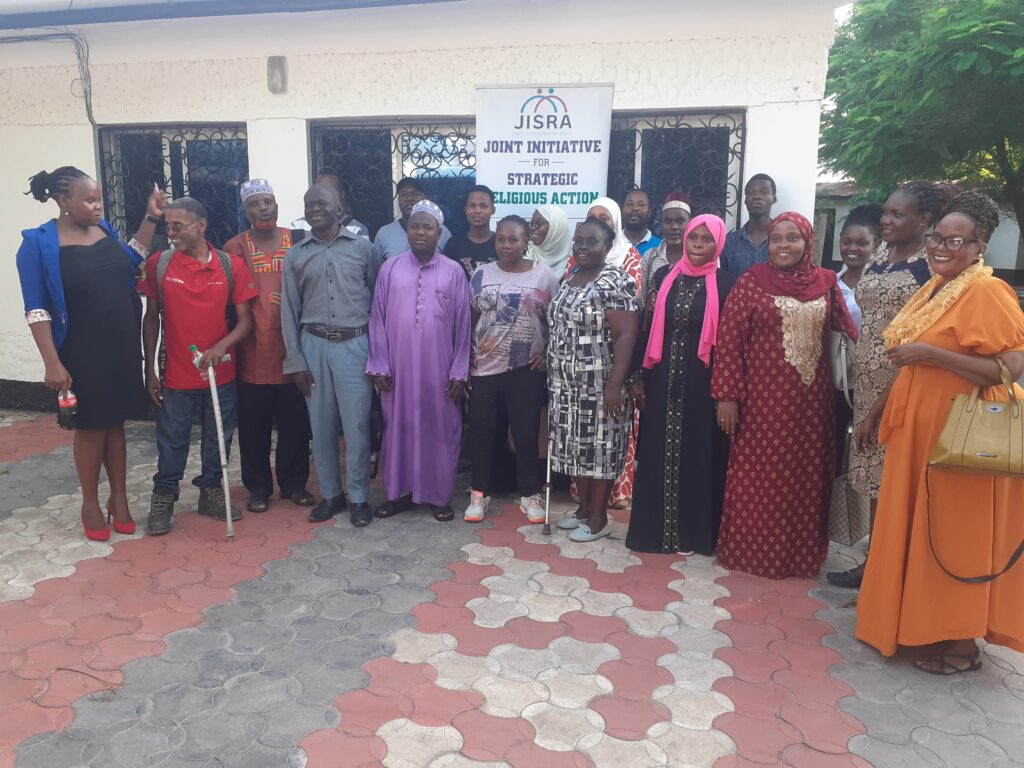By Caroline Katana
Paralegals play a critical role in providing legal support and ensuring access to justice for the community due to the challenges in accessing justice across the communities.
Paralegals can be a powerful tool of justice, helping to resolve disputes and empower individual clients and whole communities, living and working in the communities they serve.
The greatest misconception concerning access to justice is the perception that every problem requires a lawyer to solve it.
Some factors that inhibit access to justice include poverty, illiteracy, the bureaucratic nature of legal systems, and delays in the administration of justice.
A majority of paralegals in Kenya today are recruited, trained, and deployed by civil society which in turn relies heavily on international donors for support.
Speaking at Kenya Community Support Center (KECOSCE) offices in Mombasa County during a refresher course, KECOSCE officer Mwalimu Rama said community paralegal plays a vital role in ensuring marginalized and poor people access justice.
“Community–based paralegals, some are trained to take a generalist approach, they aim to respond to any problem that affects a given community but most paralegal programs however focus on specific thematic areas for example, they address security issues, police abuse, SGBV, child rights etc.,” said Rama.
Rama said the JISRA project through the Freedom of Religious and Belief project managed to train 30 community-based paralegals in Mombasa and Kwale counties.
“We trained 15 community-based paralegals in Kwale and 15 in Mombasa, they help a lot to reduce the bulk log of cases in the judicial system, this is because the cases that the paralegals can handle are handled with them without necessarily going to court, hence this saves time of the parties involved,” he added.
The officer urged the community to fully coordinate with community paralegals in reducing disputes and incidents of violence and raising rights awareness among the public.
“The paralegals have helped here so much, because they help parties to a suit, not only to solve their disputes but also to ensure that the parties can still relate without any hard feelings held against each other,” said Rama.
Rama called upon the judiciary to speed up case hearings for victims to access justice.
Emily Mweke, a paralegal, affirmed that community–based paralegals face challenges while on duty.
“We’re facing challenges, the community has failed to embrace us, and they say we’re not familiar with the legal justice system
Community-based paralegals have experienced acts of intimidation or harassment from the community, the community does not trust us on matters of the legal system despite being the backbone to access justice for the community,” said Mweke.
Mweke applauded KECOSCE for the refresher course saying skills gained will help their effort to amplify their strength.
“As community paralegals, we provide guidance to other community members on how to access and navigate legal and administrative processes, so it’s very important for us to undergo legal justice courses to sharpen our minds and ensure effective delivery of services,” she said.
Temugo Kibet, an advocate in Mombasa, who trained the community–based paralegals on how to interact with various stakeholders in the delivery of justice to the community encouraged paralegals to advise their clients to use alternative dispute resolution to decongest courts as well as prisons.
“We welcome onboard many other paralegals because they are the ones who are closer to the people, being closer to the people means they are at the best place to advise the community and to raise the very many issues that people face at the ground level including criminal activities that do occur in the strip of coast, issues such as SGBV cases that occur a lot in Kwale, Mombasa and Kilifi counties,” said the advocate.


